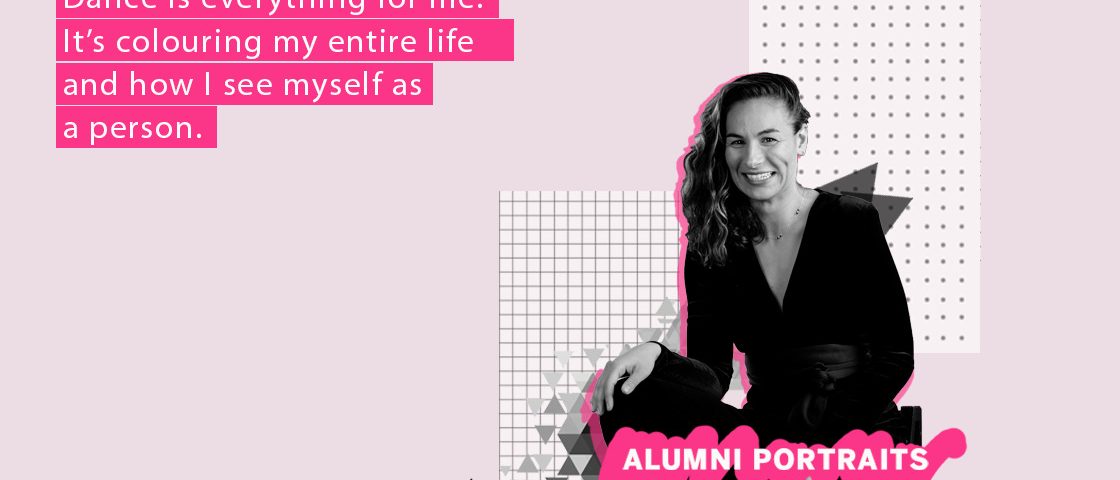
Apply now: Обучителна програма “Фокус Кино Танц” 2022
January 14, 2022
Коста Каракашян за мъжествеността в танца
October 14, 2021
To celebrate The Place’s 50th anniversary – and the resilience, passion and strength of the dance community – our series of portraits will feature some of our amazing LCDS alumni, showcase their career paths, their experience and what they have learned about being a dance artist.
When did you study at LCDS?
I did the MA Developing Artistic Practice (DAP) in 2017/18.I did a BA in Dance Theatre in my home country Bulgaria, it was purely a dance based degree, so training to be a performer for dance theatre. I always wanted to do an MA in Choreography, but by the time I joined LCDS it was almost already an outdated notion to do a choreography course or a performance course, we were looking at dance in a more expanded way, and the DAP course offered different roles as a collaborator, a choreographer, or a dancer for other people as well.
What drew me to the UK was the ability to be in London, for me London feels like a place where so much is happening and LCDS really gives you the opportunity to find your role and your unique approach to being a dance artist, and all those different paths are valid at LCDS. The school is not only understanding dance in one way.
Tells us a little bit about what happened since! What are the key moments in your career?
A key moment was that my graduation solo from the MA “Presence/Absence”, which I created for the collaborations module, was selected by Dance Umbrella for their studio sessions last year. That was definitely a highlight. I stayed in London after my MA and am developing my career here, and I feel DAP really prepared me for what life is like being an independent dance artist, to plan your own work, get your own funding, hire other creators – all of that was part of the programme.
What did you take away from your creative education? What lessons did you carry with you through your career?
During my time at LCDS I had the opportunity to meet very different artists who were all very generous with explaining how they came to their practice. That really inspired me to find out more about who I am and what I want my practice to be. That sense of kindness and acceptance and curiosity I think really comes from studying here and following your own interests and your own intuition rather than putting your practice into a specific box or category.
How has dance shaped your life? What were the challenges you had to overcome to keep dancing or to remain in the dance industry?
Dance is everything for me. It’s colouring my entire life and how I see myself as a person. It’s definitely been a challenge to move to London to be a student here, and staying here to build a career as a dance artist. It’s a very very harsh industry to work in financially. I’m actually a very hybrid being now, I have a career in business which allows me to do my dance practice and to be very selective about what dance work I do. I can be very intentional about my dance work, and I think that’s a very good life lesson.
When I graduated from LCDS I really wanted to stay in London and it was clear to me I would have to find some kind of job until my dance career picks up. I’m in corporate sales now, and when I applied for my first job 2 years ago they asked me: “Are you sure sales is right for you? It’s really challenging, you’re going to face a lot of rejection, you have to be very independent, you have to be a strong communicator and you have to be very perseverant and keep trying.” And I said, that sounds exactly like the kind of qualities a person in dance develops! I think I was very convincing and that’s how I got my first job.
I am certain my education as a dancer is key to my success in sales. Applying for funding as a dance maker is essentially the same, you are selling your idea to the funding body, proving that what you have in mind is really worth being in the world.I’m not hiding that I am a dancer. It’s not a two-faced life. In my career in business I always lead with “I am a dancer” and people remember me as someone who is successful in dance and successful in sales, and they can see the connection because I build it for them.
What are your hopes for the dance community?
I am thinking about where I want to be in my dance career a lot these days and I definitely want to give something back to people. I don’t need to do a lot of work, I would rather just make one show a year but really feel that this is something that brings an idea or notion to people and is a meaningful experience for us as a creative team as well as for the audience.
For me to survive as an artist in London I really take an approach of slowing down, not wanting everything to happen now, being very patient, making less work but being more intentional about the work I am making. Slower is more sustainable, so I think maybe making less shows and less dance films is better, but making sure you can pay your team better, provide better work conditions for your dancers and all the creatives, but also be more intentional about the experience you are curating for the audience. The more we welcome audiences the more they are going to be engaged in dance.
Interview – Suzanne Frost, Press and PR Manager at The Place

